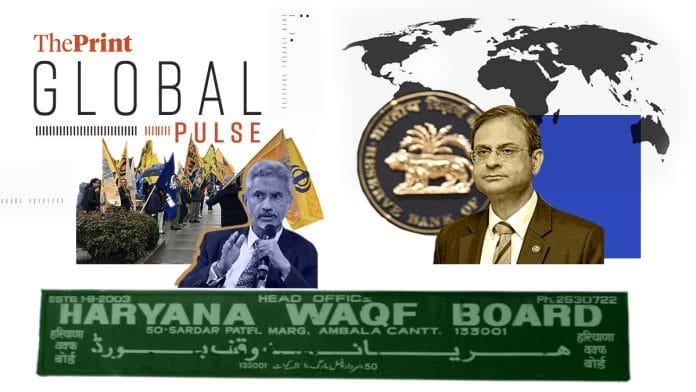New Delhi: The Narendra Modi government is out to target India’s “third-biggest landowner”—Allah, writes The Economist.
Writing about the new land law that is meant to improve “outdated legislation that allowed widespread abuses in management of waqf properties,” The Economist writes that waqf boards—which manage waqf properties “on Allah’s behalf”—count collectively as India’s third-biggest landowner after the armed forces and the Indian railways, with around 8,72,000 properties worth $14 billion.
“Opponents see the bill as an epic land grab and the latest blow in Mr Modi’s campaign to promote his Hindu nationalist ideology. It would allow the government to take ownership of thousands of waqf properties it already uses, having partly or fully occupied them, and to scrap a “waqf by user” designation for many older sites lacking documentary proof of their status,” the article says.
There is some consensus that waqf boards need reform to include more members from different Islamic sects, and that the management must be made more transparent. “But advocates of such limited reforms say that the new law imposes burdens not demanded of Hindu and other religious endowments, and was drawn up without properly consulting Muslim community leaders,” the article says. “Critics see this as a fresh front in the ruling Bharatiya Janata Party’s efforts to erode the rights of India’s Muslims.”
The Economist observes that Modi changed tactics after his party lost majority in the 2024 general election, and that he “tempered his anti-Muslim rhetoric.”
“Similar caution was evident in Mr Modi’s referral of the waqf bill to a joint parliamentary committee in August. In his first two terms he used the BJP’s majority to ram legislation through parliament. He now needs support from coalition partners,” the article observes.
Reuters reports that the Ministry of External Affairs condemned a security breach during S. Jaishankar’s visit to London, when a protester broke through a police cordon, stood in front of his car, and tore the Indian flag.
“A small group of protesters shouting slogans and waving flags of a Sikh separatist movement called Khalistan had gathered outside think tank Chatham House in London on Wednesday where foreign minister Subrahmanyam Jaishankar was speaking,” the story says.
British police said no arrests were made, but insisted that they remain committed to ensuring the security of all diplomatic visitors—the government “strongly condemned” the incident.
Noting that the Khalistani movement has been a recent flashpoint between Canada and India, Reuters reports that India had asked Britain to increase monitoring of “UK-based Khalistan supporters after protesters detached the Indian flag from the diplomatic mission’s building” in April 2023.
“India’s foreign ministry said it expects Britain to live up to its diplomatic obligations and called the protesters a ‘small group of separatists and extremists’,” the article says.
Meanwhile, Andy Mukherjee writes in Bloomberg that Sanjay Malhotra, the new RBI governor, “is right to take his foot off the brake”—but that hitting the gas will be risky.
Likening the Indian economy to a “sputtering growth engine that needs lubrication,” Mukherjee writes that Malhotra must be cautious.
“There is a crack in the structure of the world’s fastest-growing major economy. Speeding up subprime loans could be risky down the road,” he warns. Pointing to the fact that the RBI has eased some curbs on consumer loans and that there are now lower risk weights on microfinance loans, Mukherjee writes that this has freed up capital that could fuel banks’ own lending.
But there’s still a major “funk” in consumer demand, and with the general geopolitical unpredictability, it’s “understandable that policymakers want credit to flow more easily”. But doing that is only a temporary solution: hitting that 8 per cent GDP growth rate and propelling India into a developed economy will need a “more concrete foundation than a hole filled with consumer credit”, writes Mukherjee.
“While he can’t do much about jobs or wages, Malhotra could tell his bosses in New Delhi to stop dreaming about a developed society until they have fixed the corrosive inequality hollowing out the economy’s foundation. The rest is up to them,” writes Mukherjee.
(Edited by Zinnia Ray Chaudhuri)
Also read: India’s power play at ICC tournament in Pakistan & Indian taxpayers’ strained ties with authorities







International leftist and jidhasts and George Soros scoundrel sponsored international media.